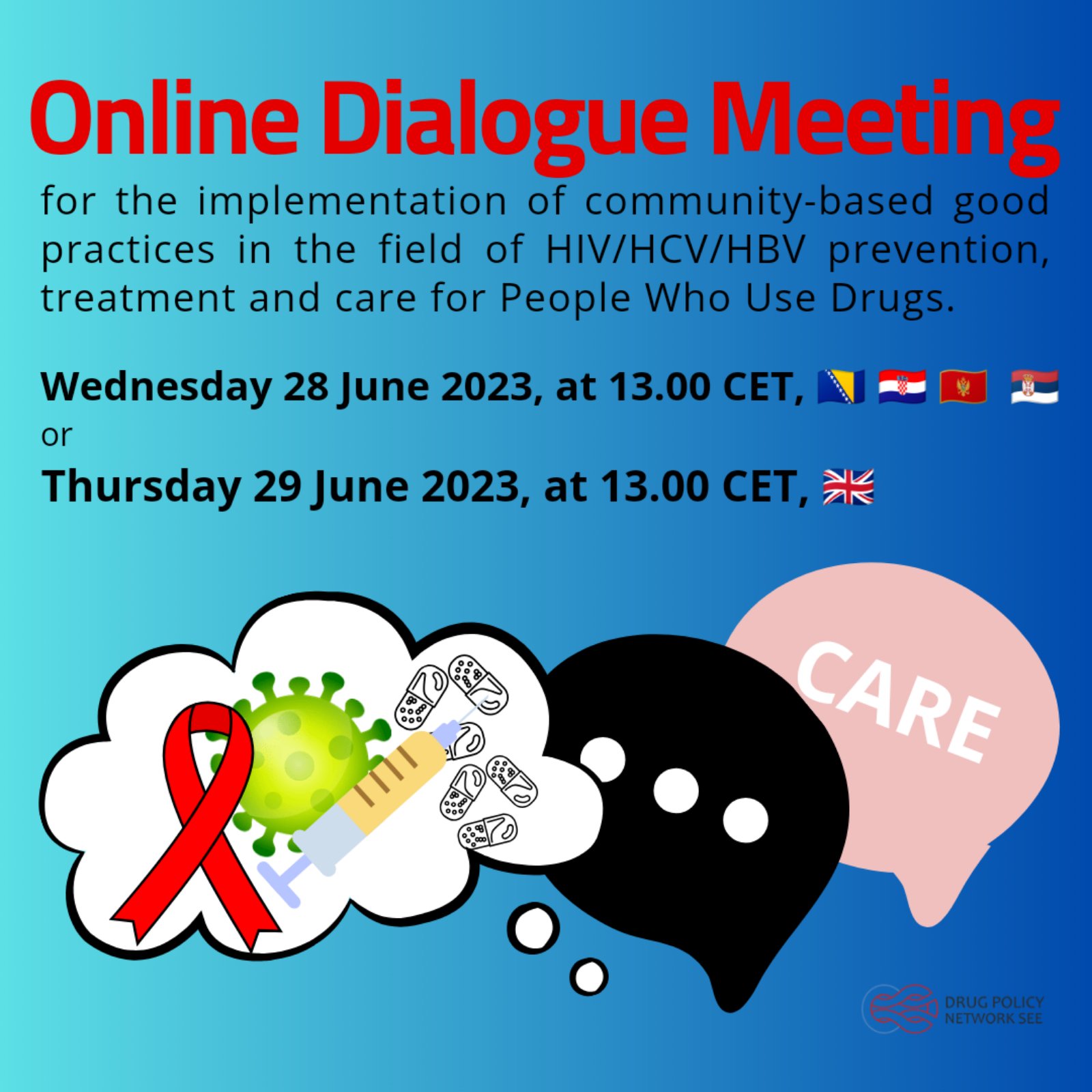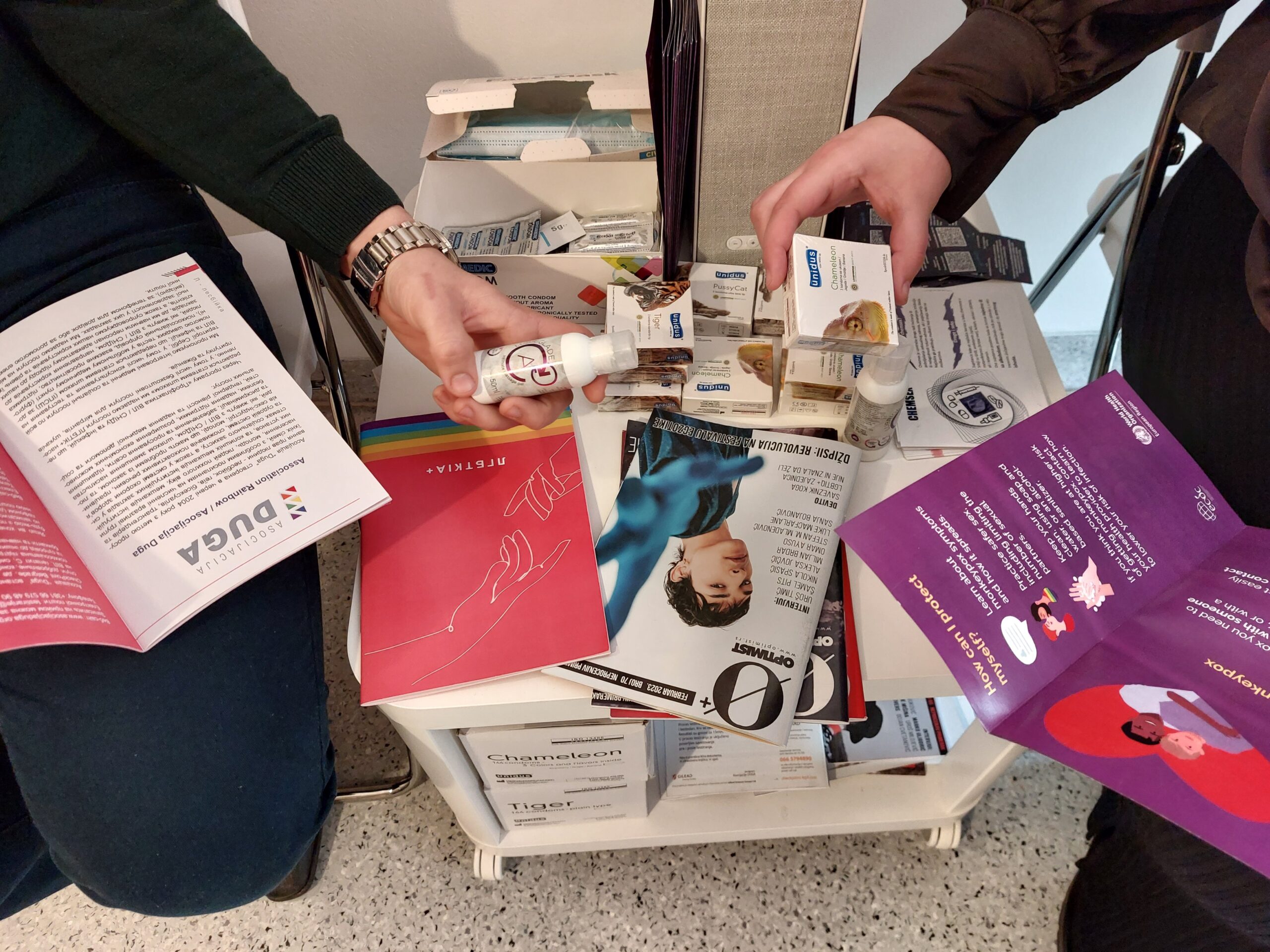From the UNAIDS press release
A new report released today by UNAIDS shows that there is a clear path that ends AIDS. This path will also help prepare for and tackle future pandemics and advance progress towards achieving the Sustainable Development Goals. The report, ‘The Path that Ends AIDS’, contains data and case studies which highlight that ending AIDS is a political and financial choice, and that the countries and leaders who are already following the path are achieving extraordinary results.
The report highlights that HIV responses succeed when they are anchored in strong political leadership. This means following the data, science, and evidence; tackling the inequalities holding back progress; enabling communities and civil society organizations in their vital role in the response; and ensuring sufficient and sustainable funding.

Progress has been strongest in the countries and regions that have the most financial investments, such as in eastern and southern Africa where new HIV infections have been reduced by 57% since 2010.
Thanks to support for and investment in ending AIDS among children, 82% of pregnant and breastfeeding women living with HIV globally were accessing antiretroviral treatment in 2022, up from 46% in 2010. This has led to a 58% reduction in new HIV infections among children from 2010 to 2022, the lowest number since the 1980’s.
Progress in the HIV response has been strengthened by ensuring that legal and policy frameworks do not undermine human rights, but enable and protect them. Several countries removed harmful laws in 2022 and 2023, including five (Antigua and Barbuda, the Cook Islands, Barbados, Saint Kitts and Nevis, and Singapore) that have decriminalized same-sex sexual relations.
The number of people on antiretroviral treatment worldwide rose almost fourfold, from 7.7 million in 2010 to 29.8 million in 2022.
However, the report also sets out that ending AIDS will not come automatically. AIDS claimed a life every minute in 2022. Around 9.2 million people still miss out on treatment, including 660 000 children living with HIV.
 Women and girls are still disproportionately affected, particularly in sub-Saharan Africa. Globally, 4,000 young women and girls became infected with HIV every week in 2022. Only 42% of districts with HIV incidence over 0.3% in sub-Saharan Africa are currently covered with dedicated HIV prevention programmes for adolescent girls and young women.
Women and girls are still disproportionately affected, particularly in sub-Saharan Africa. Globally, 4,000 young women and girls became infected with HIV every week in 2022. Only 42% of districts with HIV incidence over 0.3% in sub-Saharan Africa are currently covered with dedicated HIV prevention programmes for adolescent girls and young women.
Almost one quarter (23%) of new HIV infections were in Asia and the Pacific where new infections are rising alarmingly in some countries. Steep increases in new infections are continuing in eastern Europe and central Asia (a rise of 49% since 2010) and in the Middle East and North Africa (a rise of 61% since 2010). These trends are due primarily to a lack of HIV prevention services for marginalized and key populations and the barriers posed by punitive laws and social discrimination.
Funding for HIV also declined in 2022 from both international and domestic sources, falling back to the same level as in 2013. Funding amounted to US$ 20.8 billion in 2022, far short of the US$ 29.3 billion needed by 2025.
There is an opportunity now to end AIDS by increasing political will by investing in a sustainable response to HIV through financing what matters most: evidence-based HIV prevention and treatment, health systems integration, non- discriminatory laws, gender equality, and empowered community networks.
In 2022, an estimated:
- 39,0 million people globally were living with HIV
- 29,8 million people were accessing antiretroviral therapy
- 1,3 million people became newly infected with HIV
- 630.000 people died from AIDS-related illnesses

To access the report, follow this link>>>.



 The Drug Policy Network South East Europe (DPNSEE) organised two regional online dialogues as part of the
The Drug Policy Network South East Europe (DPNSEE) organised two regional online dialogues as part of the  Financing and sustainability of support services pose significant challenges, and the civil sector’s operational space is limited, reflecting a lack of motivation among institutions and decision-makers to enhance the quality of life for these communities. Existing laws related to these communities are problematic, as is the complex and exclusionary nature of accessing healthcare services and treatment programs. Official registers or record-keeping mechanisms are often lacking, and strategies are frequently rewritten without effective implementation.
Financing and sustainability of support services pose significant challenges, and the civil sector’s operational space is limited, reflecting a lack of motivation among institutions and decision-makers to enhance the quality of life for these communities. Existing laws related to these communities are problematic, as is the complex and exclusionary nature of accessing healthcare services and treatment programs. Official registers or record-keeping mechanisms are often lacking, and strategies are frequently rewritten without effective implementation.




 Yet, in many cases, we are considered the most unqualified to express an opinion on the thorny field of “addictions”, and there are many times when we are tried to be displaced by people without clinical experience and lived experience or any kind of theoretical background, who think they can speak and decide for us without us. All of the above are manifestations of the multiple and multidimensional stigma that we harbour, and which at the first opportunity are indirectly emphasized by the ‘professional saviours’ to remind us that they know better than we do, and that the field of advocacy and politics is not our domain.
Yet, in many cases, we are considered the most unqualified to express an opinion on the thorny field of “addictions”, and there are many times when we are tried to be displaced by people without clinical experience and lived experience or any kind of theoretical background, who think they can speak and decide for us without us. All of the above are manifestations of the multiple and multidimensional stigma that we harbour, and which at the first opportunity are indirectly emphasized by the ‘professional saviours’ to remind us that they know better than we do, and that the field of advocacy and politics is not our domain.
 The program of the training was developed following the
The program of the training was developed following the 

 The Guide is available
The Guide is available 
 Community-based and community-led testing (CBVCT) centers have a crucial role in reaching of GBTMSM population in Serbia. This is mainly due to the fact that the population is still significantly stigmatized and discriminated. This is also noticeable within the system of public health institutions. The most of the VCCT centers exist only in bigger cities, and even not all of them have sufficiently sensitized staff in order to properly approach and address the needs of the community. Therefore, majority of the target population rather chooses CBVCT as a place they would like to get the information, counseling and testing services.
Community-based and community-led testing (CBVCT) centers have a crucial role in reaching of GBTMSM population in Serbia. This is mainly due to the fact that the population is still significantly stigmatized and discriminated. This is also noticeable within the system of public health institutions. The most of the VCCT centers exist only in bigger cities, and even not all of them have sufficiently sensitized staff in order to properly approach and address the needs of the community. Therefore, majority of the target population rather chooses CBVCT as a place they would like to get the information, counseling and testing services.
 Why is defining cannabis important?
Why is defining cannabis important?
 The research paper “A new outbreak of HIV infection among people who inject drugs during the COVID-19 pandemic in Greece” was published by the International Journal of Drug Policy, Volume 117. It is available
The research paper “A new outbreak of HIV infection among people who inject drugs during the COVID-19 pandemic in Greece” was published by the International Journal of Drug Policy, Volume 117. It is available